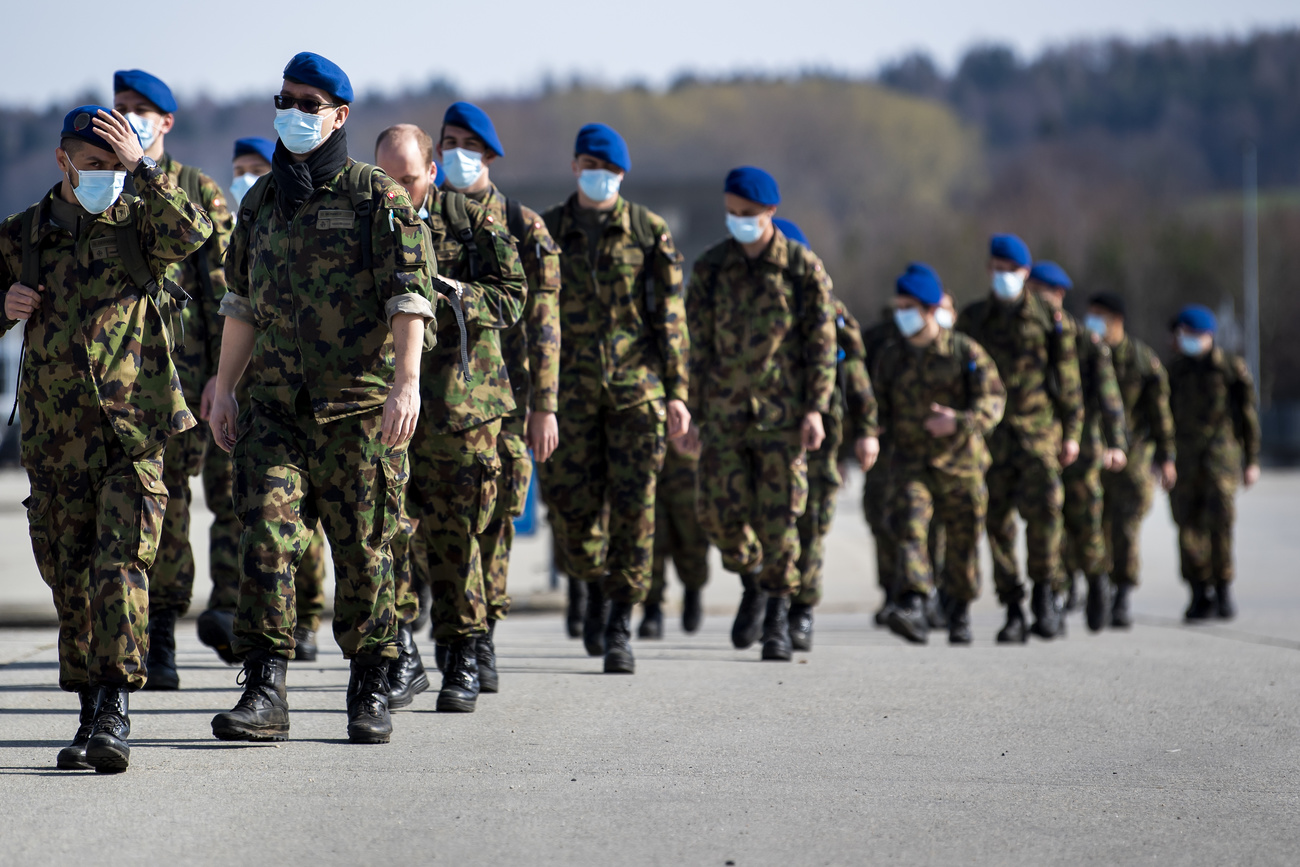
Covid 19: Geneva first canton to get army help

Geneva will be the first Swiss canton to receive support from the army in the second coronavirus wave, Swiss officials have announced.
But they have warned that despite slightly lower corona figures on Friday, there is still no turnaround in sight.
“In Geneva the number of intensive care beds is in short supply and staff are at their limit,” Anne Lévy, head of the Federal Office of Public Health (FOPH) said at the weekly Friday media conference of officials in Bern.
A division from the army will assist canton Geneva from Monday.
Requests from other cantons calling for army support (the government has permitted this since Wednesday) have been sent back to the cantons, she said. Cantons have to fulfil certain criteria – like exhausting all other avenues of support like medical students – before they are granted army assistance, Lévy added.
Approximately 6,000 military personnel were temporarily deployed in the first coronavirus wave in spring. These included military health workers, as well as regular army soldiers who assisted cantonal police forces and border guards.

More
Swiss army ends coronavirus deployment
No lasting change yet
On Friday the federal health authorities announced 9,409 cases, down from more than 10,000 cases over the last two days. There were 70 deaths.
But Stefan Kuster, head of the infectious diseases department at FOPH warned that hospitalisations were at a similar rate to that of the first wave. “The number of cases and hospitalistions will continue to rise,” he said.
Growth seems to be flattening but with over 9,000 cases the health system remains under pressure, Kuster explained. Key was to get the virus reproduction rate, which is a bit lower this week at 1.1, to below 1 (meaning each infected person will on average infect one other). This means that for now there is “not yet sign of a turnaround”.
The French-speaking part of the country is more strongly affected than other parts of Switzerland, he added,
Cantonal measures
French-speaking Vaud has meanwhile announced that working from home where possible is compulsory, going further than the federal recommendation to work at home.
New nationwide restrictions, including mask-wearing in all enclosed public spaces, came into force across Switzerland on October 29. Several cantons in the French-speaking part of the country, including Geneva, have introduced partial lockdowns in response to rising case numbers and strain on their hospitals.
The partial lockdown in Italy is also affecting the neighbouring Swiss canton of Ticino. Residents of the canton may no longer go shopping across the border, nor may they visit relatives.

More
Coronavirus: the situation in Switzerland

In compliance with the JTI standards
More: SWI swissinfo.ch certified by the Journalism Trust Initiative

























You can find an overview of ongoing debates with our journalists here . Please join us!
If you want to start a conversation about a topic raised in this article or want to report factual errors, email us at english@swissinfo.ch.